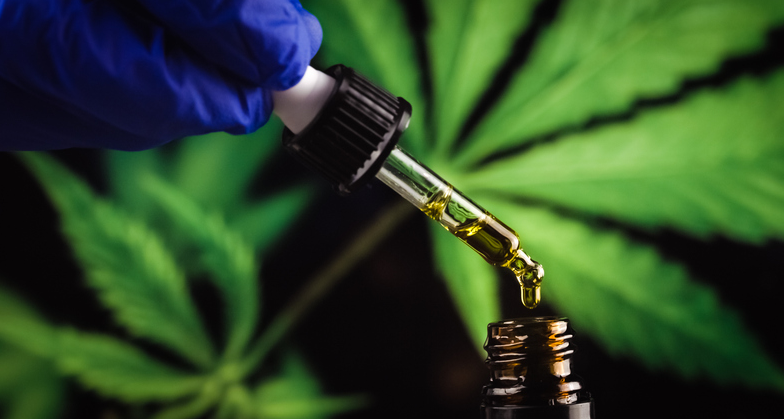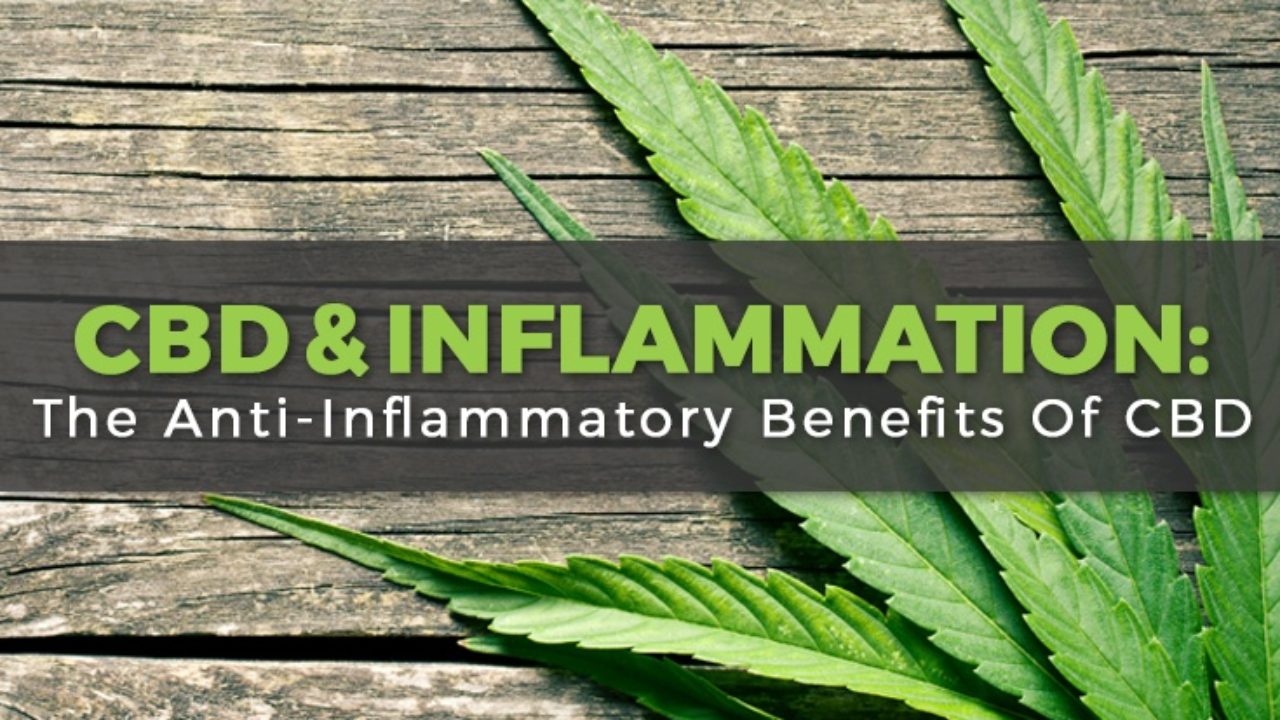CBD has gained significant attention and popularity recently for its potential therapeutic benefits. People from all walks of life are turning to this natural compound to relieve various ailments. This growing interest is not without reason, as CBD has shown promise in addressing various health concerns, including cancer.
Cancer is a devastating disease that affects millions of lives worldwide. Its impact on patients and their loved ones’ physical and emotional well-being is profound. As traditional treatment methods continue to evolve, so do searches for complementary approaches that can enhance the quality of life for those battling this relentless condition.
In this article, we will explore the potential of CBD as a means of cancer relief. We’ll delve into its origins, legal status, and the benefits it may offer in managing the symptoms associated with cancer. Furthermore, we’ll examine the existing research and studies that shed light on the efficacy of CBD in this context. Lastly, we’ll discuss important considerations and precautions, including needing consultation with healthcare professionals and potential interactions with other medications.
By the end of this article, you will have a comprehensive understanding of CBD and its potential role in relieving cancer patients. Keep in mind, however, that while CBD shows promise, further research is still needed to fully comprehend its effects on cancer and its potential implications for treatment. So, let’s embark on this journey of exploration and discovery together.
Understanding Cancer and Current Treatment Options
Cancer, a disease characterized by the uncontrolled growth of abnormal cells, is a formidable opponent affecting millions worldwide. It can manifest in various forms, such as breast, lung, or colon, each with its own challenges and treatment options.
Traditional treatment methods for cancer typically include a combination of surgery, chemotherapy, radiation therapy, and targeted therapy. Surgery involves the removal of tumors and affected tissues, while chemotherapy uses drugs to kill cancer cells. Radiation therapy utilizes high-energy rays to destroy cancer cells and targeted therapy focuses on specific molecular targets within cancer cells to inhibit their growth. These treatment options have been the mainstay of cancer care for many years and have helped countless individuals in their fight against this devastating disease.
While these treatments have proven effective in many cases, they often come with significant side effects that can impact a person’s quality of life. These side effects may include hair loss, nausea, fatigue, and weakened immune function. Additionally, traditional treatments may not be effective for all types of cancer, and some individuals may experience resistance to these therapies over time.
In recent years, there has been growing interest in alternative cancer treatment approaches, including CBD or cannabidiol. CBD is a naturally occurring compound in the cannabis plant, known for its potential therapeutic benefits. Unlike THC, CBD does not produce psychoactive effects, making it an appealing option for those seeking relief without the associated “high.”
Research suggests that CBD may offer potential benefits in relieving symptoms associated with cancer. These benefits include pain management, reduced nausea and vomiting, improved appetite, and anxiety and depression relief. By targeting the body’s endocannabinoid system, which regulates various physiological processes, CBD may help alleviate some of the burdensome symptoms experienced by individuals undergoing cancer treatment.
While studies on the use of CBD for cancer are still in their early stages, initial findings have been promising. For example, a study published in the Journal of Pain and Symptom Management found that cancer patients who used CBD experienced a significant reduction in pain compared to those who received a placebo. Another European Journal of Pain study reported that CBD may help alleviate chemotherapy-induced nausea and vomiting.
It’s important to note that CBD should not be seen as a replacement for traditional cancer treatments. Instead, it may serve as a complementary therapy to enhance the overall well-being of individuals undergoing cancer treatment. As with any alternative treatment, it is crucial to consult with a healthcare professional before incorporating CBD into your cancer care regimen. They can guide dosage potential interactions with other medications and ensure it is safe for your situation.
In conclusion, understanding cancer and the available treatment options is essential for individuals navigating their cancer journey. While traditional treatments have been effective, they often have significant side effects. The potential benefits of CBD for cancer relief offer a glimmer of hope for those seeking alternative approaches to symptom management. However, more research is needed to fully understand the efficacy and safety of CBD in cancer care. By working alongside healthcare professionals and staying informed about the latest scientific studies, individuals can make informed decisions about incorporating CBD into their cancer treatment plan.
What is CBD?
Explanation of CBD, its origins, and legal status
CBD, short for cannabidiol, has become a buzzword in recent years, gaining widespread attention for its potential health benefits. Derived from the Cannabis sativa plant, CBD is one of over a hundred naturally occurring compounds known as cannabinoids. Unlike its close cousin, THC, CBD does not produce the psychoactive effects commonly associated with marijuana. This crucial distinction has led to the growing popularity of CBD as a natural remedy for various ailments.
The origins of CBD can be traced back to ancient civilizations, where the cannabis plant was used for medicinal purposes. However, it wasn’t until recent years that scientific research has begun to shed light on the potential benefits of CBD. With more and more people seeking alternatives to traditional pharmaceuticals, CBD has emerged as a promising option.
Regarding its legal status, CBD can be a gray area. While the cultivation of marijuana remains illegal in many parts of the world, the legal landscape surrounding CBD is evolving rapidly. In some countries, CBD products are readily available over the counter, while in others, strict regulations govern their sale and distribution. Individuals need to familiarize themselves with the specific laws in their jurisdiction to ensure compliance.
If you’re interested in incorporating CBD into your wellness routine, it’s crucial to do your research and find reputable sources. Understanding the potential benefits and risks associated with CBD is essential for making informed decisions about your health. By consulting with a healthcare professional, you can receive personalized guidance and recommendations tailored to your individual needs.
As the demand for CBD grows, so does the need for more rigorous scientific research. While preliminary studies have shown promising results, further investigation is required to understand CBD’s therapeutic potential fully. This ongoing research will help dispel misconceptions and provide a clearer picture of how CBD can be utilized for various health conditions.
In the next section, we will explore the potential benefits of CBD for cancer relief. From pain management to anxiety and depression relief, CBD has shown promise in improving the quality of life for individuals battling cancer. So, let’s dive deeper into the ways CBD may offer relief in the face of such a challenging diagnosis. Stay tuned!
To learn more about CBD, its origins, and legal status, visit What is CBD.
The Potential Benefits of CBD for Cancer Relief
CBD, or cannabidiol, has gained significant attention in recent years due to its potential benefits for cancer relief. While research is ongoing, many anecdotal reports and preliminary studies suggest that CBD may offer some relief from the symptoms associated with cancer and its treatments. Let’s explore some potential benefits CBD may provide for individuals battling cancer.
Pain Management
One of CBD’s most prominent potential benefits for cancer relief is its ability to manage pain. Cancer-related pain can be debilitating and significantly impact a person’s quality of life. Traditional pain medications may not always provide adequate relief and often have unwanted side effects.
CBD, on the other hand, has shown promise as a natural alternative for pain management. It interacts with the body’s endocannabinoid system, which regulates pain perception. By binding to certain receptors in the brain and immune system, CBD may help reduce inflammation and alleviate discomfort associated with cancer.
Reduced Nausea and Vomiting
Nausea and vomiting are common side effects of cancer treatments such as chemotherapy and radiation therapy. These symptoms can be distressing and affect a person’s ability to maintain proper nutrition and hydration. Fortunately, CBD may offer relief in this area as well.
Studies have suggested that CBD has antiemetic properties, which can help reduce nausea and vomiting. By interacting with serotonin receptors in the brain, CBD may help regulate nausea and alleviate these unpleasant symptoms. This potential benefit of CBD could make a significant difference in the overall well-being of individuals undergoing cancer treatments.
Improved Appetite
Cancer and its treatments can often lead to a loss of appetite, causing weight loss and malnutrition. Maintaining a healthy weight and proper nutrition is crucial for supporting the body’s immune system and overall health during cancer treatment.
CBD may help stimulate appetite and promote healthy eating habits. By interacting with receptors in the body’s endocannabinoid system, CBD may increase hunger signals and improve the desire to eat. This potential benefit of CBD could be particularly beneficial for individuals struggling with appetite loss due to cancer.
Anxiety and Depression Relief
Cancer is not only physically taxing but also affects a person’s mental and emotional well-being. Anxiety and depression are common psychological symptoms experienced by cancer patients, often stemming from the stress and uncertainty surrounding the disease.
CBD may offer relief from anxiety and depression symptoms, potentially boosting mental health. It interacts with receptors in the brain that regulate mood and emotions, potentially promoting a sense of calm and relaxation. By incorporating CBD into their wellness routine, individuals battling cancer may find some relief from their emotional challenges.
While these potential benefits of CBD for cancer relief are promising, it is essential to note that further research is needed to understand its efficacy and safety fully. It is always advisable to consult with a healthcare professional before incorporating CBD or any alternative treatments into a cancer care plan, as they can provide personalized guidance and monitor potential interactions with other medications.
In the next section, we will explore the existing research and studies on CBD for cancer, shedding light on the scientific evidence behind these potential benefits.
CBD gummies and other CBD products can be a convenient and discreet way to incorporate CBD into your routine. They offer a tasty and enjoyable method of consumption, allowing you to experience the potential benefits of CBD with ease.
Note: The potential benefits of CBD for cancer relief mentioned in this article are based on preliminary studies and anecdotal evidence. It is essential to consult with a healthcare professional to determine the best approach for your unique situation.
Research and Studies on CBD for Cancer
As interest in the potential therapeutic benefits of CBD continues to grow, researchers have turned their attention to its potential role in cancer treatment. Numerous scientific studies and clinical trials have been conducted to explore the effects of CBD on different types of cancer, providing valuable insights into its potential as a complementary therapy.
One area of research focuses on the anti-tumor properties of CBD. Studies have shown that CBD may inhibit the growth and spread of cancer cells by inducing apoptosis, which leads to cell death. In addition, CBD has been found to suppress the formation of new blood vessels in tumors, a process known as angiogenesis, which is essential for their growth and survival.
Furthermore, research has also highlighted the potential of CBD in alleviating cancer-related symptoms. One of the most well-known benefits is its ability to manage pain. Several studies have shown that CBD can effectively reduce pain associated with cancer and its treatment, offering a natural alternative to traditional pain medications.
In addition to pain management, CBD has shown promise in reducing nausea and vomiting, common side effects of chemotherapy. By interacting with receptors in the brain that regulate nausea and vomiting, CBD can help alleviate these distressing symptoms and improve the quality of life for cancer patients undergoing treatment.
Another area where CBD may offer relief is in improving appetite. Cancer and its treatments can often lead to a loss of appetite, resulting in weight loss and malnutrition. However, studies have shown that CBD can stimulate appetite and increase food intake, potentially helping patients maintain a healthy weight and receive adequate nutrition during treatment.
Moreover, CBD has been investigated for its potential to provide anxiety and depression relief to cancer patients. The emotional toll of a cancer diagnosis and the rigorous treatment process can lead to heightened levels of anxiety and depression. CBD’s interaction with the body’s endocannabinoid system can help regulate mood and reduce these symptoms, offering much-needed support for patients during their cancer journey.
While the existing research on CBD for cancer is promising, it is important to note that many studies are still in the preclinical or early clinical stages. More research is needed to fully understand CBD’s mechanisms of action and potential benefits in cancer treatment. It is crucial for individuals considering CBD as a complementary therapy to consult with a healthcare professional to ensure it aligns with their overall treatment plan.
In conclusion, the growing body of research and studies on CBD for cancer indicates its potential as a valuable addition to traditional cancer treatments. CBD holds promise for enhancing the well-being and quality of life of cancer patients, from its anti-tumor properties to its ability to alleviate symptoms such as pain, nausea, and anxiety. However, further research is required to unlock its potential and establish its efficacy fully. Stay tuned for more scientific advancements in this exciting field!
Considerations and Precautions
When considering CBD for cancer relief, consulting with a healthcare professional is crucial. Seeking guidance from a medical expert knowledgeable about CBD and its potential benefits can provide valuable insights tailored to your needs and circumstances.
While CBD has shown promise in alleviating cancer-related symptoms, it is essential to be aware of potential side effects and interactions with other medications. As with any supplement or medication, CBD may have certain effects on the body that can vary from person to person.
Some individuals may experience mild side effects such as drowsiness or dry mouth, while others may have more pronounced reactions. Monitoring your body’s response to CBD and adjusting the dosage is crucial. Maintaining open communication with your healthcare provider throughout the process can help ensure a safe and effective treatment plan.
Additionally, CBD can interact with certain medications, including those metabolized by the liver. If you are taking prescription medications, discussing potential interactions with your healthcare provider is important to avoid any adverse effects.
To further enhance your understanding of CBD and its potential benefits for cancer relief, it is advisable to explore reputable sources of information. Educating yourself about the latest research findings and staying informed about CBD use’s legalities can empower you to make well-informed decisions.
Remember, each person’s experience with CBD may differ, and what works for one individual may not work the same way for another. By approaching CBD use with caution, considering potential interactions and side effects, and consulting with a healthcare professional, you can navigate the world of CBD for cancer relief safely and effectively.
For more information on CBD, its benefits, and different forms of consumption, you can visit Mr. Mean Green’s CBD Information page.
Conclusion
In conclusion, CBD holds immense potential as a natural remedy for cancer relief. As discussed throughout this article, CBD has shown promising results in various areas, including pain management, reduced nausea and vomiting, improved appetite, and anxiety and depression relief. These potential benefits make CBD an attractive option for individuals undergoing cancer treatment.
However, it is important to note that more research is needed to fully understand the effectiveness of CBD in alleviating cancer-related symptoms. While existing scientific studies have provided valuable insights, further investigation is required to establish the optimal CBD dosage and its long-term effects on cancer patients.
Individuals should consult with a healthcare professional before incorporating CBD into their cancer treatment plan. They can provide personalized guidance based on the individual’s medical history and current treatment regimen. Additionally, healthcare professionals can help identify potential CBD side effects and any interactions with other medications.
In the realm of cancer research, CBD has emerged as a promising avenue for relief and support. It offers a natural alternative to traditional treatment methods and can potentially enhance the overall well-being of cancer patients. As the scientific community continues to explore the therapeutic benefits of CBD, it is crucial to stay informed about the latest CBD research and developments.
For those interested in exploring CBD as a cancer relief option, choosing high-quality products from reputable sources is essential. CBD capsules, CBD edibles, and CBD tinctures are popular forms of consumption that provide convenient and precise dosing. Additionally, individuals may consider exploring the benefits of broad-spectrum CBD or the potential synergistic effects of combining CBD with other cannabinoids like THC.
While CBD is gaining recognition for its potential health benefits, it is crucial to approach its use responsibly. This includes understanding the CBD legality in your region and being aware of any potential risks or contraindications, such as its use during pregnancy. By arming yourself with reliable CBD information, you can make informed decisions about incorporating CBD into your cancer treatment journey.
In conclusion, CBD offers hope for individuals seeking relief from cancer-related symptoms. Its potential to alleviate pain, improve appetite, reduce nausea, and provide emotional support makes it a valuable addition to cancer treatment options. As we continue to uncover the full extent of CBD’s health benefits, it is crucial to support ongoing research efforts and remain open to this natural compound’s possibilities. Together, let us strive for a future where CBD becomes integral to holistic cancer care.





